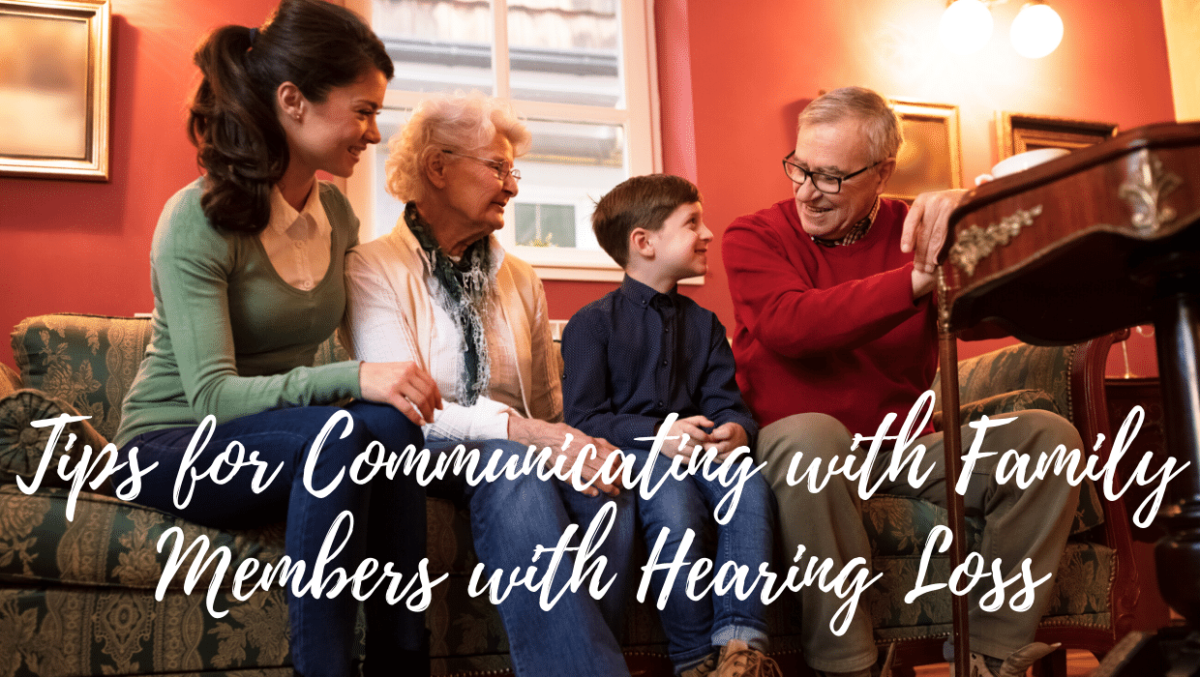Hearing loss is an unfortunate part of life for many of us, and as it sets in it can create some real difficulties in communication. Many family members of those with hearing loss have expressed frustration at the situation (some going so far as to trick a family member into coming in for a hearing test; a practice we don’t recommend), and the experience for the person losing their hearing is also frustrating, and likely frightening. If you and a family member are dealing with hearing loss, here are a few tips to try to keep communication smooth and enjoyable between you.
It’s Not Personal
When miscommunications or failures to hear arise, remember that it’s not anyone’s fault. These kinds of things are going to happen. Remember that you all want the best for each other, correct the miscommunication and move on.
Get the Person’s Attention Before Speaking
Shouting from other rooms is a no-go, as is asking questions or giving information without first securing the attention of a person with hearing loss. They may not hear you at all if you just start talking, but if their hearing loss has reached a problematic phase it will take them a few seconds to engage their brain in “listening mode.” Listening with hearing loss is a complex process involving extra attention and reliance on context clues. It’s not only tiring, but it takes just a second or two to get ready to listen. If you’re talking to a person with hearing loss, make sure they’ve communicated to you that they’re ready to hear you before you start talking about something.
Set Yourself Up for Success
If you’re planning to talk for a while, keep in mind that you can help your family member by setting the scene a little bit. Make sure you’re seated facing each other, with good lighting and little or no background noise. Good light makes lip-reading easier. With distractions at a minimum, the party with hearing loss will have a much easier time following the conversation.
Keep Some Verbal Tricks in Mind
Talking to a person with hearing loss takes a little practice and patience. Many people make certain mistakes like drawing words out or yelling, but neither of these is very helpful. Instead, try saying your words normally, but adding just a little extra pause between them. You might also enunciate more than usual, but it’s not necessary to speak much louder than normal. In fact, this can simply distort the other person’s ears or hearing aids, making your words even less intelligible.
If the person with hearing loss asks you to repeat something, instead of saying the same thing again, try rephrasing it. This will give them a new set of context clues that will be helpful in parsing out what you’re trying to get at.
Similarly, try to avoid speaking in single words, but give a little extra clue as to what you’re saying. The single words “yes” and “no” can actually sound pretty similar to someone with significant hearing loss, so try saying “Yes, that is fine, I can do that,” or, “No, that is not going to work.” Also, avoid contractions. Even mild hearing loss will make it difficult for someone to distinguish between “can” and “can’t.”
Seek Professional Assistance
Hearing healthcare professionals are well-versed in the kinds of strategies that will aid in communication for those with hearing loss. If you or your loved one has gotten hearing aids, talk to the audiologist you got them from about the best communication strategies for someone with your or your loved one’s hearing loss profile.
Wear Hearing Aids
If you have hearing loss and you aren’t yet treating it with hearing aids, make an appointment today for a hearing test. There are countless benefits to restoring your sense of hearing, so don’t wait any longer to take the crucial step of getting a hearing test. If you’re already fitted with hearing aids, wear them! There’s an adjustment period that comes with hearing aids- usually a couple weeks to a month or so. They may take a little getting used to, but once you get the hang of them you won’t even notice them.

